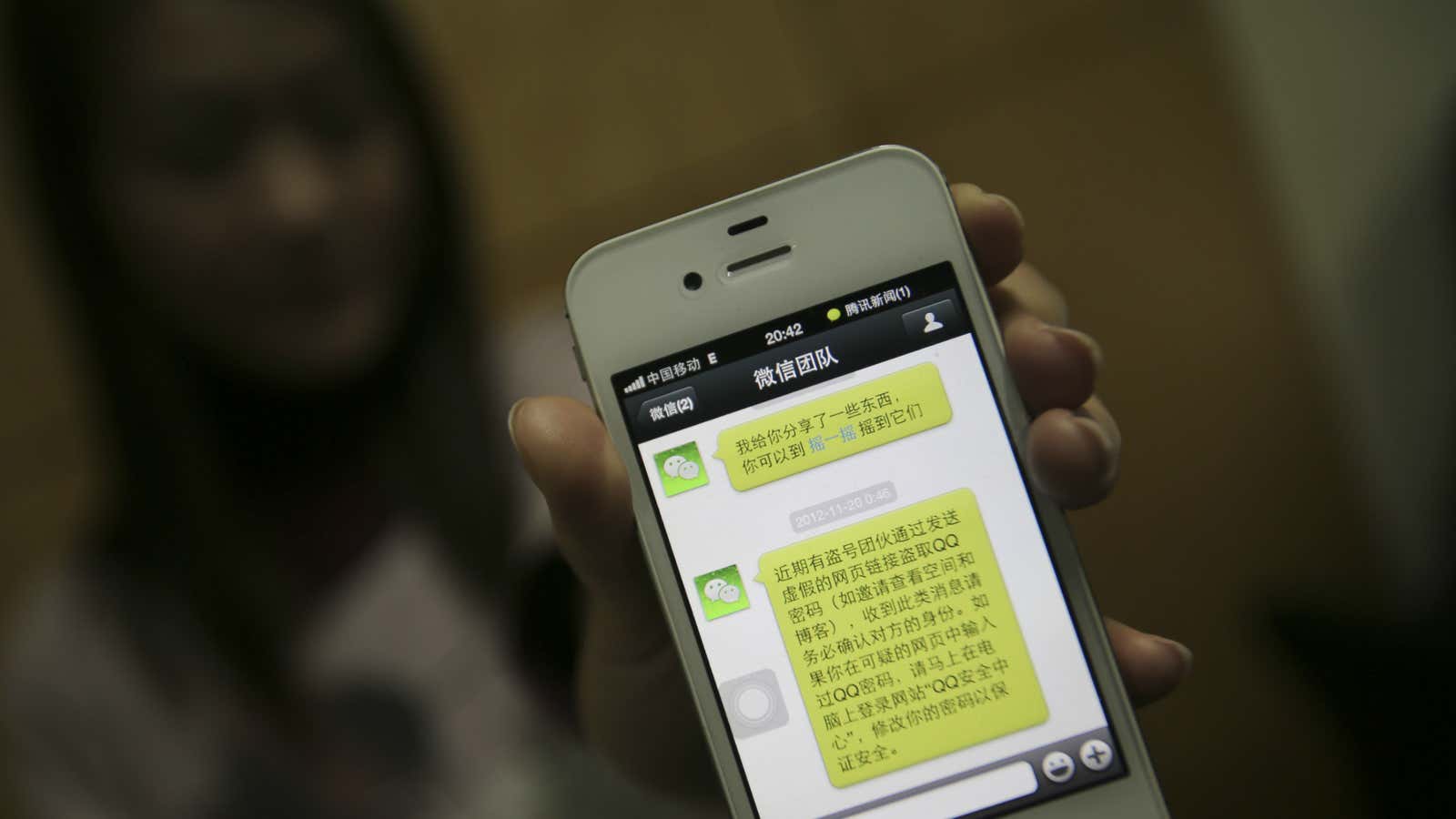This article has been corrected.
Tencent, China’s biggest Internet company, may hail from the most populous country on the planet, but that hasn’t stopped it from aggressively expanding into new markets. WeChat, its two-year-old social networking app, just went from 50 million users to 70 million outside of China in just six weeks.
Five months after launching in the US, in addition to operations in South America, Europe, Australia and its native Asia, Tencent’s newest focus is Africa, specifically the continent’s biggest economy. With the help of its partner Naspers—which holds a 34% stake in the Chinese firm—Tencent is targeting South Africa’s 50 million people with a marketing campaign to promote WeChat.
WeChat competes directly with other well-known companies like Google, Facebook, Instagram, WhatsApp and LINE, with a suite of functions geared towards voice, video and text messaging. Its CEO, Pony Ma, has said that “internationalization is Tencent’s dream,” and it scored a major marketing coup this week by launching WeChat commercials featuring the internationally beloved footballer Lionel Messi.
Not everything is rosy for Tencent, however. The company beat earnings expectations in March, but analysts reacted by downgrading its stock, concerned about a squeeze on profit margins. One of the main culprits? The rising costs of its international WeChat expansion.
And despite Tencent’s adeptness at (as Quartz’s Gwynn Guildford put it) “ripping market share out of its competitors’ soft, feeble hands,” it’s not the only Chinese Internet company on a growth spurt. Qihoo, a Tencent rival that recently allied itself with e-commerce company Alibaba, got a major boost this week when analysts at Citigroup lifted their target share price to $65 —39% higher than the previous day’s close.
Tencent’s rapid-fire expansion may not be so much a world-conquering march as an all-out sprint to establish itself in new markets before its competitors get there first.
[Correction: A previous version of this article spelled the name of Tencent’s CEO incorrectly. His name is Ma Huateng, but is most commonly referred to as Pony Ma]




